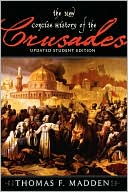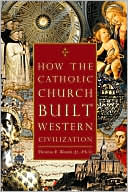From the AmericanThinker some good (if somewhat disheartening) reading on the Establishment Clause (or what is left of it)
With the approach of the presidential inauguration, America's most notorious atheist, Michael Newdow, is back in the headlines. Once again, he and an assortment of other plaintiffs are challenging the long-standing addendum, "So help me God," to the presidential oath of office. The lawsuit, filed by the American Humanist Association on Dec. 30, also challenges as unconstitutional, the pending invocation and benediction prayers to be offered respectively by Pastor Rick Warren and Rev. Joseph E. Lowery at the swearing-in ceremony of President-select Barack Obama on Jan. 20....
...Many words may be used to describe Michael Newdow, but unintelligent is not one of them. It is likely that most Americans view lawsuits against the religious expressions of inaugurations as frivolous and without merit, invoking the same type of ire against those challenging the constitutionality of the Flag pledge and the national motto. Dr. Newdow, however, knows something that most Americans do not.
Newdow knows that the legal precedent of the U.S. Supreme Court is actually on his side. He knows also that when it comes to judging his complaints, the Court has not been intellectually honest in the application of its precedent. So, he keeps at it (in 2002, the 9th circuit federal appeals court applied precedent and agreed with him, ruling that the Flag pledge was unconstitutional)....
...The religion clause of the First Amendment of the U.S. Constitution merely prohibits the federal Congress from passing law to establish religion and/or to prevent the people from enjoying free exercise. Under the protection of the Constitution, the feds cannot, by force of law, make you or your State subscribe to a religion and cannot prevent you or your State from carrying out religious expression. In short, the First Amendment ensures that the federal government has no jurisdiction over the religious affairs of the states and the people.
Then came the 1947 case of Everson v. Board of Education, in which the Supreme Court scuffled with the Establishment Clause, turning it on its head and setting it against the very states it was meant to protect. (Jurists refer to that feat as the doctrine of incorporation through which the Court uses the 14th Amendment as a handy tool to apply the Bill of Rights against the states.) Ironically, the clause meant to limit the federal government was used by the federal government to expand its power. Holding the Establishment Clause upside down in a full nelson, the Court forced it to cry Uncle Sam by reading into it a previously unheard-of doctrine: The requirement of government - federal, state and local -- neutrality toward religion.
We have reached the point in which the historic purpose of the Establishment Clause is practically irrelevant....(more)


No comments:
Post a Comment